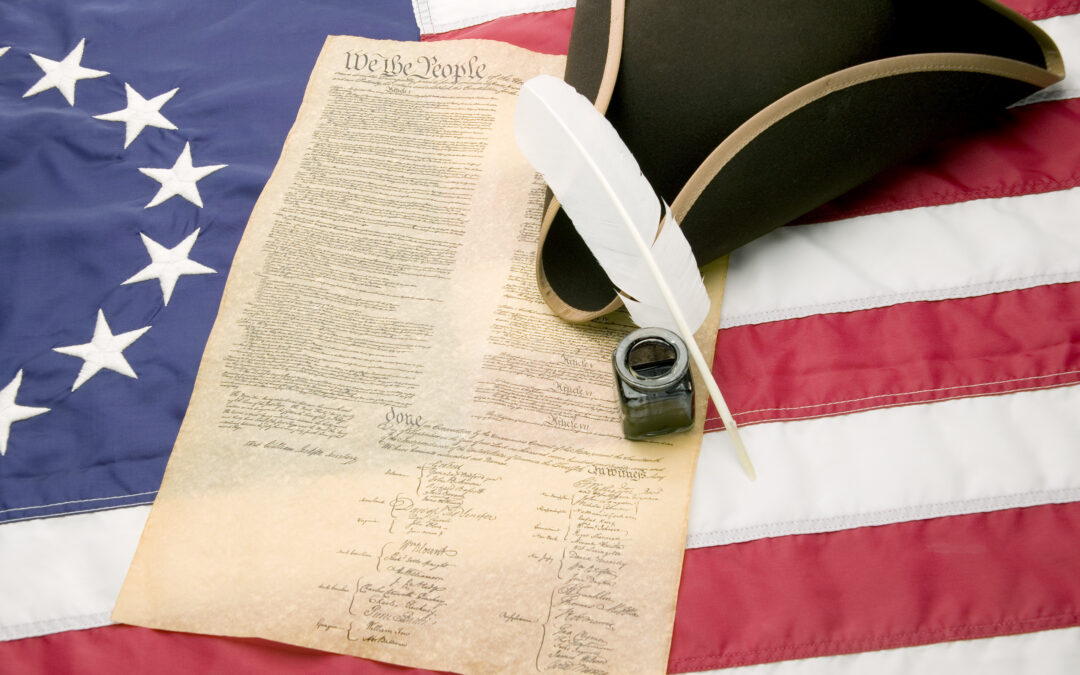Do you know how constitutional law affects your business?
Several clauses within The United States Constitution are applicable to business activities. These include certain rights and legal issues that could affect your business. Consult with a business lawyer to learn more about the law and how to keep your business protected.
What are business constitutional rights?
We are all familiar with how the US Constitution protects our individual rights. But what you may not know is that many clauses in the US Constitution also apply to businesses.
Although any given business-related legal issue may involve country, district, and/or federal courts, many applicable laws originate at the federal level—or at least have a federal component.
These rights include:
- Corporate Rights
- The Commerce Clause
- The rights to free speech
- The rights to free association
It’s important to note that the Constitution refers to congress as a governing body and not individual businesses, so gray areas may apply when it comes to things such as the right to censor—e.g., say on a media channel.
Confused yet? Request a free strategy session with us to learn more about how constitutional law affects your business.
Freedom of Speech/Corporate Speech
Freedom of speech is a basic right for individuals and businesses, however, there are limits. Defamation, for example, can be debated in the interest of protecting the rights of a business (or individual).
Obscenities or violence are other examples of limitations. If you’re a business owner keep note of this when creating commercials and advertising: commercial speech is protected in the first amendment but not in all situations.
Corporations have a certain level of protection when it comes to advertising, but due diligence is needed when moving into the area of political speech. For instance, donating to a political party.
The Rights of a Corporation
Businesses like corporations are, to some extent, treated like citizens in the context of the types of rights that they have — for instance, they are obligated to pay taxes, and they can be sued. This is called corporate personhood and relates to the fact that businesses are property to be protected.
Whether or not your business is vulnerable to certain legal actions could depend on the type of business structure you have. As you build your business, consult with a business lawyer to ensure you are protected under constitutional law.
The Commerce Clause
The Commerce Clause (Article I, Section 8) offers the federal government a certain level of power to regulate commerce in the context of trade. This is probably the most important clause for any US business. It applies to both international trade and trade between US states.
Keep in mind that any business relationship with a foreign company is subject to foreign trade regulations.
The Rights to Free Association
The Right to Free Association allows businesses and individuals to “associate” with religious or other groups in regards to the information that they produce and distribute.
However, this freedom of association does not apply to any employment laws. Be diligent about labor laws and ensure that your hiring and employment practices follow those outlined by the Equal Opportunity Employment Commission.
Data Privacy and Cybersecurity
As cyber law is a new and emerging field, there is no single federal or constitutional law addressing its issues. However, there are several elements in the constitution that may fall under the heading of cyberlaw.
- Crimes against people (e.g., harassment, stalking, pornography, identity theft)
- Against property (e.g., DDOS attacks, hacking, copyright infringement)
- Against the government (e.g., hacking, cyber terrorism)
Some examples of federal laws that affect businesses include:
- Health Insurance Portability and Accountability Act (HIPAA) laws apply to health care providers but also some associated businesses
- The Consumer Privacy Protection Act of 2017 is a federal bill meant to strengthen issues to do with sensitive information and security breaches. Some commercial companies are obligated to have comprehensive consumer privacy and data security programs.
- The Gramm-Leach-Bliley Act (GLBA) is an information security and privacy law which primarily applies to financial institutions.
- The Federal Trade Commission (and FTC Act) has several programs to guide businesses in best practices around consumer protection.
The federal government is likely to have more power in regard to this emerging field of law in the near future. Understanding this now is vital for your business going forward.
A Business Lawyer Will Help You Understand the Law and Protect your Rights
Constitutional law is tricky, but it’s vital that you understand it as a business owner. A knowledgeable business lawyer can help you understand the law and guide you towards best practices so that you are less likely to make costly mistakes. So be sure to hire one when you start your company… not when you get stuck in a legal conundrum.
Feel secure and confident that you are doing things right. We’re here to help.
Call toll-free 855-976-3783 today or book a consultation online.



